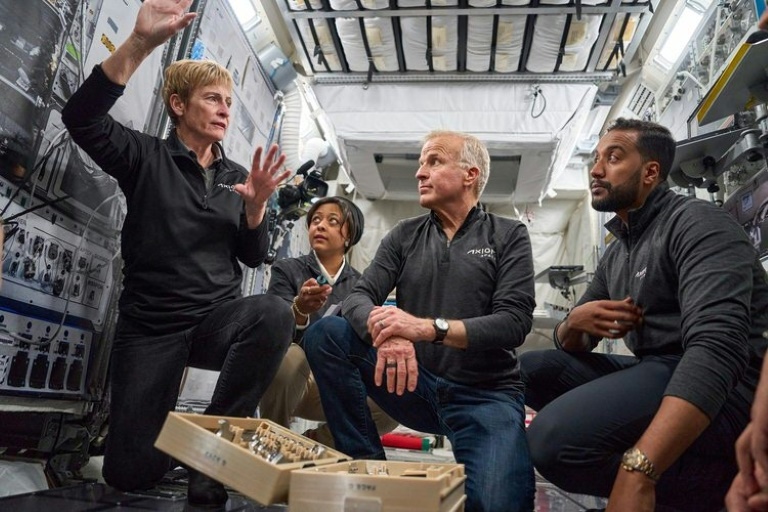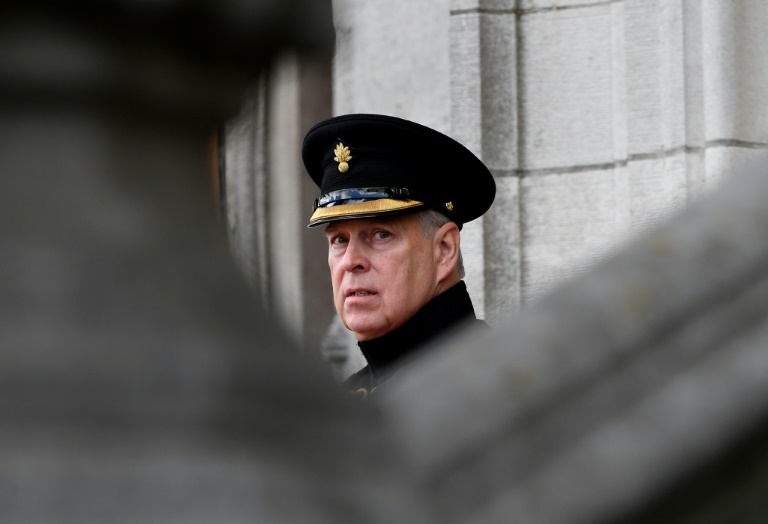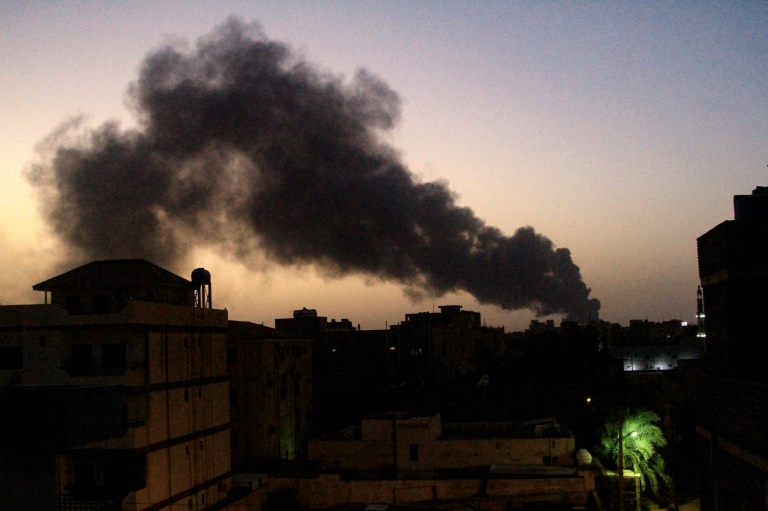AFP
A private mission to the International Space Station (ISS) organized by Axiom Space is due to blast off from Florida on Sunday, carrying the first two Saudi astronauts to go to the orbiting laboratory.
Rayyanah Barnawi, a breast cancer researcher, will become the first Saudi woman to voyage into space and will be joined on the mission by fellow Saudi Ali Al-Qarni, a fighter pilot.
The Axiom Mission 2 (Ax-2) crew will take off aboard a SpaceX Falcon 9 rocket from the Kennedy Space Center at Cape Canaveral in the southern state of Florida at 5:37 pm (2137 GMT).
The team also includes Peggy Whitson, a former NASA astronaut who will be making her fourth flight to the ISS, and John Shoffner, a businessman from Tennessee who will serve as pilot.
They are due to spend around 10 days on board the ISS, where they should arrive around 1:30 pm on Monday.
“Being the first Saudi woman astronaut, representing the region, it’s a great pleasure and honor that I’m very happy to carry,” said Barnawi at a recent press conference.
She added that, aside from excitement for the research she will carry out on board, she is looking forward to sharing her experience with kids while on the ISS.
“Being able to see their faces when they see astronauts from their own region for the first time is very thrilling,” she said.
A career fighter pilot, Al-Qarni said he has “always had the passion of exploring the unknown and just admiring the sky and the stars.”
“It is a great opportunity for me to pursue this kind of passion that I have, and now maybe just fly among the stars.”
The mission is not Saudi Arabia’s first foray into space.
In 1985, Prince Sultan bin Salman bin Abdulaziz, an air force pilot, took part in a US-organized space voyage.
But the space mission involving a Saudi woman is the latest move by the oil-rich Gulf kingdom, where women only gained the right to drive a few years ago, to revamp its ultraconservative image.
The kingdom established the Saudi Space Commission in 2018 and launched a program last year to send astronauts into space.
The four-member team is set to carry out some 20 experiments while on the ISS.
One of them involves studying the behavior of stem cells in zero gravity.
They will join seven others already on board the ISS: three Russians, three Americans and Emirati astronaut Sultan al-Neyadi, who was the first Arab national to go on a spacewalk last month.
The mission to the ISS will be the second in partnership with ISS-key holder NASA by Axiom Space, a private space company, which offers the rare voyages for sums that run into the millions of dollars.
The company oversees training the astronauts, chartering their means of transport and ensuring the smooth management of their stay.
Axiom Space carried out its first private astronaut mission to the ISS in April 2022, sending three businessmen and former astronaut Michael Lopez-Alegria to spend 17 days in orbit as part of Ax-1.
Some astronauts on the ISS at the time said they had to take time out of their day — precious in zero gravity — to take care of the space tourists.
“My time is actually a lot less constrained than Mike Lopez-Alegria’s time was on the first mission,” said Whitson. “I’ll be available to help the crew members a lot more as they need assistance.”
For Axiom Space, these missions are a first step toward an ambitious goal: the construction of its own space station, with the first module expected to launch in 2025.
The station would at first be attached to the ISS before separating and orbiting independently.
NASA plans to retire the ISS around 2030 and to instead send astronauts to private stations, which will also host their own clients, leading the US space agency to encourage the development of programs by several companies.
Russia recently agreed to extend its use of the ISS until 2028, having threatened an earlier pullout last year as ties unraveled between the Kremlin and the West over Moscow’s invasion of Ukraine.
The other international partners — Japan, Canada and the European Space Agency — have committed themselves, like the United States, to continue operations until 2030.







